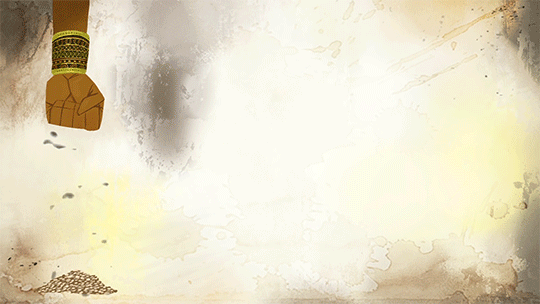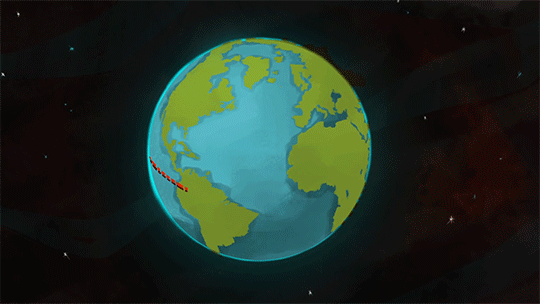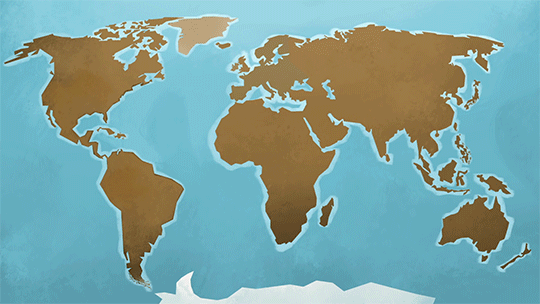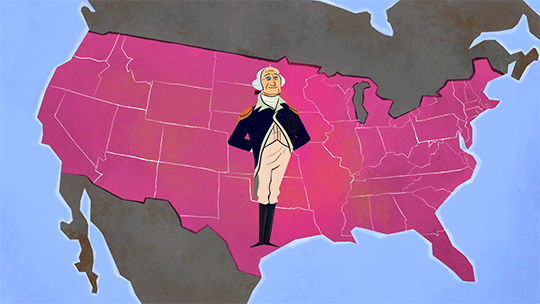A study group for the daunting subject of European History
Don't wanna be here? Send us removal request.
Text
ok so apparently not a lot of ppl know to do this when ‘reviewing notes’ but
look at section of notes
look away from section of notes
explain section of notes
check if explanation was correct
identify mistakes/gaps
recite correction for each mistake/gap
repeat until no mistakes
gotta practice recalling the info instead of just acknowledging its correctness
9K notes
·
View notes
Text


100 DAYS OF PRODUCTIVITY [46/100] 7.6.19 - two eggs
I really felt like reading today but I couldn’t decide what so I used a random number generator to see what shelf then what book I should read and it landed on the great gatsby! Also I got new glasses and really wanted to show them off!
2K notes
·
View notes
Text
“Imagine if people had been going ‘don’t fight hate with hate’ back when Hitler was around.”
Fam…let me tell you bout Poland.
104K notes
·
View notes
Photo

AP EUROPEAN HISTORY MASTERPOST
Unfortunately, my school doesn’t offer AP history courses until junior year curse the STEM-based curriculum there are five math tracks and one history track in sophomore year, and it doesn’t offer AP European History period. However, we do take a European history course that covers the essentials of the test. As a result, I’m currently self-studying AP Euro in order to supplement my schoolwork and take the AP exam in May. These are some of the resources I’ve found helpful so far :)
VIDEOS
Tom Richey
Paul Sargent
Eugen Weber
Yale’s European Civilization (1648-1945) Video Course
Compilation of Videos on Everything!
Crash Course P1 and P2 (not all videos are relevant for the test!)
Khan Academy (again, not everything is relevant!)
PRACTICE QUESTIONS AND TESTS
FRQs from previous tests
albert.io
online map quiz
30-question multiple choice practice test
topic-specific multiple choice quizzes
varsitytutors (they also have an app!)
FLASHCARDS
studystack
dates
literature (renaissance through scientific revolution)
handy dandy quizlet folder
general
CRAM PACKETS & REVIEW SHEETS
huge spreadsheet made by @solarstudy @studyplants @heckthepolice
brief topic-by-topic overviews
HuGe review sheet
study guide that covers up to the Industrial Revolution
review packet with key terms and review questions
PREP BOOKS
REA Crash Course
5 Steps to a 5 // 2014-2015 edition
Barron’s
Princeton Review
Peterson’s
GENERAL
historysage
amazing explanations of everything
teacher page with tips and links
collegeboard home page
// you can find my other original posts here //
124 notes
·
View notes
Text
Art Styles (Medieval, Renaissance, and Baroque)
Hi everyone, I wanted to describe some art for anyone who really wants to buff up their essays on the exam. Since I might go in too much detail, I’ll stop after baroque and give you this guide, but if you want my long explanations with the historical background and all of the examples, go ahead and send a mail!
Good luck on exams!!
Penny
Keep reading
137 notes
·
View notes
Note
I was wondering can you go over Imperialism because I need it for a test
Okay, let’s first break it down— Imperialism can be cut to “imperial” like an empire, right? So imperialism is when all of the states of Europe begin yearning to build empires.
WHY EMPIRES: This is where mercantilism and colonization comes into play. This is the thought that the more raw materials a country has from the land it has acquired, the more products it can export. The more export there is, the better the economy. They key to this though are the colonies. The colonies must have the raw materials needed in order for this concept to work. This is where we have the Berlin Conference of 1884-5 with the so-called “scramble for Africa” where European imperial powers literally cut up Africa and divided it among themselves with only guesses as to what raw materials the region might have.
An earlier example of imperialism and mercantilism would be the Russian conquest of Siberia in the 17th and 18th centuries where the Russians took Siberia for the furs. Actually in history furs were huge, don’t forget the north American fur trade out of Canada that was bringing a lot of profit to Britain (fun quote about Britain’s imperialism ”the sun never sets on the British”).
I hope you enjoyed this quick overview. Need more explanation? Send us another message here because we’re always happy to help!
Penny
10 notes
·
View notes
Text
most missed MCQs
Here are some random facts that were the most missed questions on my Euro midterm that was composed of old AP questions
Banking was the main source of the Northern Renaissance financial success
The end of Italy’s renaissance was the sack of Rome by Emperor Charles V
The anabaptists were mainly considered ridiculous by the other sects of Christianity because of their strict belief in the separation of church and state
When the Jews, Moors, and Huguenots were expelled from Spain and France respectively, it negatively affected the economy because these races were made up the middle class.
The direct effect of St. Bartholomew’s Massacre was the War of Three Henrys aka a civil war.
The Fronde was a noble uprising in which they tried to keep their rights
The Robot were the manual labor serfs in Bohemia
A result of the 30 Years War was the maintained political fragmentation of the Holy Roman Empire
The cause of the inflation of prices in Europe during the 15th and 16th centuries was the increase of population and precious metals
The reason behind Oliver Cromwell’s quelling of the Irish Rebellion was because the Royalists were attempting to overthrow the government.
Pride’s Purge is when Cromwell received control of Parliament and got rid of the House of Lords aka the nobility. It was left as the Rump Parliament
Intendants were used in French provinces to keep control and wtch of the people
Dutch Art focused of the average people and the middle class life
17th century rulers supported academics that offered technology and prestige
Kepler proved mathematically that the plants’ path is in the shape of an ellipse
The metric system is an enduring change of the French Revolution
Edmund Burke was a foreigner who wrote a critic of the French Revolution
The major mid-17th century trade center was Amsterdam
The Civil Constitution of the Clergy curbed the power of the clergy
The COncordat of 1812 reconciled with the church but did not give its major rights back
The aim of the Congress of Vienna was to restore the previous monarchs to the throne and to return and keep the balance of power
IN Boccaccio’s Decameron you saw popular anticlerical beliefs
Oliver Cromwell was not a leader in the 30 Years War
Politique were instrumental in ending the wars of religion
Charles V did not go to parliament first
Marriage was tightly controlled by the law and parental guidance
The most important thing to an Enlightened Despot was the codification of a law
The growth of trade led to the growth of towns into national units
The consulate under Napoleon is very similar to the rulings of an enlightened despot
The 2 European powers that defied the pattern of absolutist government were England and the Dutch Republic
667 notes
·
View notes
Text
Sam's Ultimate, Failproof, Foolproof AP Survival Kit
Prepare a backpack or tote bag with the following:
Water bottle. Fill it up people. Don’t be dumb. Also don’t drink so much that you’re getting up to pee every half hour.
A pencil pouch. Include in this 4 blue or black pens (whichever color is your preference) and 2 pens in the other color. Pens are mandatory on History and English essays. Also include a minimum of 8, pre-sharpened, wooden, #2 pencils. No mechanical pencils here folks. Don’t forget a hand pencil sharpener and one or two big erasers!
Granola bars or some other easy snack for breaks.
Extra ponytail holders and bobby pins. We’ve all been there, taking an important test with our hair in our face. Ugh, that sucks.
A blanket. I mean, I don’t know about you, but I like to wear shorts when it’s 90 degrees in May. Which means my legs are going to freeze in that room during the test. Sounds weird, but you’re testing with people you go to school with. They already know how weird you are :)
A jacket or sweatshirt. Mine is a lightweight fleece pullover. Blanket’s got your legs. Gotta get the top!
Cough drops. Last year I sat next to a guy who had pneumonia. He coughed the entire time. I gave him half my bag of cough drops and it definitely helped!
Gum.
Calculator. After making sure your calculator is approved, make sure you pack some back up batteries or that you at least charged your Nspire’s battery.
Lunch. Not necessary for all exams, but sometimes you get stuck with back to back exams. Last year, it was American Gov and Comparative Politics. For me, this year, it’s English Language and Statistics. There isn’t time to leave the testing site to eat, so just pack a PB&J and call it good people.
Remember to keep chapstick at hand. And if you have a uterus, remember all your supplies including but not limited to: tampons, pads, Midol, and ibuprofen.
There, now if you have no idea what a Taylor Polynomial or can’t remember anything about Henry VIII (oof), you at least have the best every Exam Kit and you can feel good about something :)
Kidding, you all are going to rock all of these. You’ve studied, you’ve prepared, you know more than you think you do.
Happy testing!!
604 notes
·
View notes
Text
IMPORTANT EVENTS AND THEIR DATES IN MODERN EUROPEAN HISTORY
1453 Constantinople is sacked by Muslim forces
1488 Bartolomeu Diaz rounds the Cape of Good Hope
1492 Columbus encounters the Americas (God, Glory and Gold.)
1517 Martin Luther’s posting of the 95 Theses
1520 Diet of Worms declares Martin Luther an outlaw
1524-1525 The Peasants’ Revolt takes place in Germany
1534 Act of Supremacy passed in England → Henry VIII becomes head of the Anglican Church
1545 Council of Trent begins The Counter Reformation
1555 Peace of Augsburg (cuius regio, eius religio →whose region, his religion)
1585-1589 War of the Three Henries in France
1588 Spanish Armada destroyed by the English and “The Protestant Wind”
1603 Elizabeth I Dies → Tudor Dynasty Ends and the Stuart Dynasty Begins
1618-1648 The Thirty Years War (Treaty of Westphalia ends the war in 1648)
1642-1646 English Civil War (Roundheads vs. the Cavaliers)
1649 Charles I is executed → Oliver Cromwell begins his rule
1660 Stuart Restoration in England through Charles II
1688-1689 Glorious Revolution in England→ William and Mary of Orange replace James II and sign the English Bill of Rights
1643-1715 Era of Louis XIV The Sun King (l’etat c’est moi)
1689-1725 Reign of Peter the Great in Russia
1756-1763 The Seven Years War
1789-1799 Era of the French Revolution (Radical Stage → late 1792-1795)
1799 Napoleon comes to power
1805-1815 Napoleonic Wars are waged
1814-1815 The Congress of Vienna meets (Main principles: Legitimacy, Conservatism, Compensation & Balance of Power)
1819 Peterloo Massacre in England
1830 Belgian Independence
1832 Reform Bill in England Passed
1848 Revolutions break out across Western Europe (France, Austria, Italy and Germany)
1861 Serfs emancipated in Russia under Alexander II
1870-1871 Germany and Italy Unification
1884-1885 Berlin Conference is held (“Scramble for Africa”)
1894 Tsar Nicholas II comes to power in Russia (the last of the Romanovs)
1905 Sunday Bloody Revolution in Russia → “The Dress Rehearsal”
1914 Archduke Franz Ferdinand is assassinated → WWI starts
1917 March and November (Bolshevik) Revolutions in Russia
1918 Treaty of Brest-Litovsk is signed →Russia withdraws from war
1918 WWI ends
1919 Treaty of Versailles is signed
1918-1921 Russian Civil War (Reds vs. Whites)
1922 Mussolini comes to power in Italy and establishes the 1st Fascist government
1922 Russia officially becomes known as the USSR (Union of Soviet Socialist Republics) → The Soviet Union
1923 Adolf Hitler leads the Beer Hall Putsch in Germany
1924 Lenin dies
1928 Stalin is firmly entrenched as the leader of the Soviet Union → begins the first of several 5 year plans
1929 Stock Market Crash in the US → The Great Depression begins
1933 Hitler comes to power in Germany
1938 Munich Conference (Peace in our time→Neville Chamberlain)
1939 World War II starts with Germany’s invasion of Poland
1945 World War II ends (V-E Day → May 8, 1945 and V-J Day → August 15, 1945)
1945 First session of the United Nations is held
1945-1989 Cold War (U.S. vs. S.U. begins and begins to end in Poland)
POST WW II Decolonization → European colonies become independent
1946 Winston Churchill gives the “Iron Curtain” speech
1948-1949 Operation Vittles→the Berlin Airlift
1949 USSR successfully tests first atomic bomb
1951 European Coal and Steel Community formed (sounds like the Zollverein)
1953 Stalin dies and is succeeded by Nikita Khrushchev → destalinization begins
1954 French forces defeated in French-Indochina at Dien Bien Phu
1956 Hungarian revolt against the Soviet Union → it is crushed by the Soviets
1957 Rome Treaty is signed → The European Economic Community (EEC) is created = Common Market
1957 Sputnik is launched by the Soviet Union → the first space satellite
1958 The fifth Republic is born in France and Charles de Gaulle becomes President
1961 Berlin Wall built → dividing East and West Berlin
1961 Soviet Yuri Gagarin becomes the first man in space
1962 Cuban Missile Crisis → 90 miles off the coast of Florida
1963 Betty Friedan’s The Feminine Mystique is published
1964 Leonid Brezhnev becomes leader of the Soviet Union
1966 Under President Charles de Gaulle, France withdraws from the common NATO military command
1968 “Prague Spring” occurs in Czechoslovakia → it is crushed by the Soviets
1968 Student revolt in France (Paris)
1978 Pole Karol Wojtyla elected Pope → Pope John Paul II → 1st non-Italian in 455 years
1979 Margaret Thatcher becomes the first female Prime Minister of England (“The Iron Lady”) (Mags loathes no one more than this heinous twat)
1979 The Soviet Union invades Afghanistan (eventually becomes their own “little Vietnam”)
1980 1st independent labor union in the Soviet Bloc formed “Solidarity” led by Lech Walesa of Poland
1980 Ronald Reagan elected President of the US (calls the Soviet Union an “evil empire”)
1985 Gorbachev becomes Soviet leader (implements policies of perestroika and glasnost)
1986 Chernobyl Nuclear Power Plant accident in the Soviet Union (specifically the Ukraine)
1989 Berlin Wall comes down
1989 The “Velvet Revolution” occurs in Czechoslovakia → Vaclav Havel becomes President
1989 The Soviet Union withdraws its forces from Afghanistan
1989 Romanian leader Nicolai Ceausescu is overthrown and killed
1990 Lech Walesa becomes President of Poland
1990 East Germany and West Germany reunify into one Germany
1990 The first McDonalds opens in Russia
1991 Attempted coup attempt in the Soviet Union → The Soviet Union begins to disintegrate
1991 Boris Yeltsin becomes President of Russia → former 15 republics of the Soviet Union form the Commonwealth of Independent States (C.I.S.)
1991 Yugoslavia begins to break apart
1992 Maastricht Treaty signed
1997 Tony Blair becomes Prime Minister of England → 1st Labor Party leader in 18 years
1999 Eurodollar becomes the single currency of the European Union (EU)
2K notes
·
View notes
Text
Tips for History Class
History is one of my favorite subjects, from my Ancient World History class to APUSH to my AP European History class, I’ve found the material fascinating. However, it is a course that can be difficult, particularly if you don’t enjoy reading assignments. Here are some tips!
Keep up with textbook readings. They can be tedious, but keeping up with readings also allows you to participate more effectively in class discussions, especially if your teacher reviews the content from the previous night’s reading in class.
Decide on one platform for note taking. This allows you to keep them organized and easily accessible. I prefer to take mine on Google Drive, with a new document for each chapter and a separate folder for essays, in-class activities, etc.
Time yourself for a set amount of pages (say, 10 pages) and see how long it takes you. It takes me approximately 50 minutes to read and take notes on 10 pages, and I can use that information to plan out my studying.
Divide and conquer. You don’t have to do 15 pages in one sitting. I like to take pictures of a few pages of the textbook on my iPad so when I have some downtime, I can do a few pages of reading.
Take notes on your readings. Simply reading and/or highlighting is ineffective - notes will help you retain information, and give you something to refer back to.
Here’s a post on how I do my notes.
Hand-writing your notes helps you remember better, but it’s more time consuming. Ultimately, I type my notes because it’s easier for me to organize and access.
Try your hardest not to copy what the textbook says. Instead, summarize ideas in your own words so you know what they mean.
Bold/italicize/underline important people, dates, and legislation, so you can find them quickly. [For example, 1900: Sigmund Freud publishes The Interpretation of Dreams about the importance of dreams and subconscious thought to an individual’s psychological makeup, might be a bullet point]
Participate in class, and communicate with classmates/teachers.
Sit close to the board, or in what my teacher calls the “T-zone” - the column of seats in the middle and the last row or two - which is where the teacher’s eyes tend to look at, so there’s a greater chance of you being called on
Take notes on what’s being lectured. They don’t have to be neat or pretty, but sometimes teachers will comment on ideas that will appear on the test, etc, and it’s important to write those down.
Get the phone number of a classmate or two (ideally a responsible one!) in case you miss class so they can send you the notes and some updates.
Start studying early, and study effectively.
It is very difficult to cram successfully for a history exam. Whenever possible, I schedule 3-4 days to study for an exam, more if it’s a particularly long one.
Find yourself a good review book. Two recommendations I have are the AMSCO for APUSH or the McGraw-Hill AP Achiever for AP Euro. These will boil down the chapter to main events, ideas, and trends.
Don’t get bogged down in details. Especially for AP courses, general political, artistic, and cultural trends will be the most important. Make connections between earlier units.
I like to make graphic organizers for important ideas for each country in the unit, and then to fill them out by memory to see if I remember everything.
For me, the most important thing is that I know the textbook content, especially since my teacher bases most of her questions off of it, which is something many teachers do.
Pay attention to important clues when taking tests.
Circle dates, names, and locations in the prompt - anything that can give you more context about the question. Look at the clothing and setting to get a better idea of context in visual prompts (paintings, etc).
When analyzing primary source, keep in mind the time and author. What were their biases? Who was the audience?
Try to find trends in questions. Sometimes teachers prefer a certain type of question, or like to trick you up by changing one thing (they might not even realize this). Finding these patterns will make your test taking easier.
Be careful when reading the question. Sometimes they ask for which one was not true, or to select the true statement from a list of false ones. Don’t get confused!
Do not change your answers on a whim. Really, if you’ve studied, you’re more likely to be right the first time around.
If you’re allowed to see your test after you receive your grade, go and identify the questions you got wrong. This lets you see areas of weakness (are you bad at primary source analysis? Is there something you’re consistently getting wrong?). See if you can retrace your thought process when answering it and explain it to your teacher so he/she can explain where you went wrong. Who knows, you might even get partial credit back!
Good luck!
1K notes
·
View notes
Quote
Don’t invade Russia in winter.
AP European History, summed up in 5 words.
(get a 5 in 5 words or less)
2K notes
·
View notes
Text
Psst AP Euro and AP history kids, here is a tip!
If you are stuck writing a thesis statement, just use this easy peasy template:
____________ caused _________ which led to _________ and ultimately __________.
works like a charm.
4K notes
·
View notes
Text
If you ever feel like you’ve screwed up, just remember that in 1348 the Scots thought it would be a good idea to invade England because the English were weakened by the Plague. They subsequently caught the plague themselves, went back to Scotland, and killed half their own population.
289K notes
·
View notes
Text
My bros I have been doing a lot of reading about Wacky WWII Hijinks lately and I want to tell you a story because I love it okay
once upon a time there was a dude in Spain named Juan Pujol Garcia. Pujol was a chicken farmer. Pujol hated him some goddamn fascists.
See Spain had recently ended its civil war, with the fascists taking power. So when WWII broke out in Europe, Spain technically remained neutral but in practice was buddy buddy with the Nazis. Juan Pujol Garcia thought this was pretty bullshit
so soon after war breaks out Pujol travels to his local British embassy and goes “hey I wanna spy on the Nazis for you”
“who the fuck are you?” say the British, and kick him out
but Pujol is not deterred! He still wants to dunk on some fascists, so now he goes to his local German embassy instead. “hey” he says, “I wanna spy on the British for you, I sure do hate them”
“yeah okay” say the Germans “that seems pretty legit”
and just like that Pujol now officially works for the Abwehr, the German intelligence agency. They hand him some spy gear (invisible ink and such) and instruct him to travel to Lisbon, and from there make his way into the UK. So Pujol heads to Lisbon, and a little while later writes to his German handlers telling them he’s made it to England
Pujol had not made it to England. He had, in fact, made it to the Lisbon public library, where he checked out a number of English guide books and set about just wholesale making shit up
this is slightly complicated by the fact that, for example, he completely did not understand British currency and all his expense reports were basically gibberish. He also reported things like bribing Scotsmen, because the people of Glasgow would “do anything for a litre of wine” (an actual quote) because, hey, people in Spain like wine so that’s probably the same right?
Here is where it starts to get really crazy, because the Abwehr loves this. “wow this dude is a great spy” they say, because apparently none of them had ever been the England either. In fact, they are so pumped about this new awesome spy that the British start to get worried
you see, by this time the British had cracked German’s supposedly unbreakable Enigma code and were totally dunking on the Nazis by reading basically all of their ~super top secret~ radio transmissions. And, crucially, they’d become so good at breaking and reading traffic that there were literally no German spies in England. The Germans would set up a spy drop (usually dropping dudes in by parachute in the middle of the night), the British would intercept the message and then just scoop the dudes up as soon as they landed in a move that must have been SUPER embarrassing to the spies
so there are no German spies in the UK because they’re all sitting in a prison run by MI5 (although some are being run under supervision as double agents, feeding Germany bullshit). But suddenly MI5 is picking up all this traffic from the Germans talking about their super great spy- a spy the British do not have in their jail
“oh shit” says MI5, and starts rereading all the transmissions they have to and from this mysterious super spy.
“hey wait” says MI5, upon actually reading the shit the spy was sending. “someone is playing silly buggers, pip pip cheerio”
At this point, Pujol, still in Lisbon, had actually been approaching the British embassy again, repeatedly, but apparently “I am literally an Abwehr agent and would like to offer you my services” wasn’t interesting enough, because he was repeatedly turned away, again. It wasn’t until MI5 started asking around that one of the embassy staff was like “oh yeah we know that guy”
so in 1942 the British finally make contact with Pujol and he officially becomes a spy for MI5. They move him to London and assign him a case officer so he can start making up even better bullshit
and he does. Once actually in London, Pujol reports to the Abwehr that he’d recruited a whole slew of informants- from a bunch of Welsh Aryans to disaffected army officers. He ends up with a network of 20+ sub-spies, all feeding him information from around the UK
none of these people actually exist
Pujol just straight up invented like 20 people, keeping careful track of their fake personalities, names, and activities. With the help of MI5, the information he sends becomes even better- a mix of true but ultimately useless facts and actually important intel timed to arrive in Germany just slightly too late to be of any use. He and his “spy network” become the Abwehr’s most trusted agents
Pujol, now codenamed Agent Garbo (for his acting skills), ends up playing a huge role in the run-up to D-Day, where the Allies mounted a huge intelligence campaign to convince Hitler that the planned site of attack was going to be Calais and not Normandy (this was Operation Fortitude and you should absolutely look it up for more Wacky WWII Adventures). Obviously you know how this ended
crazily enough, the Abwehr never figured out that Pujol was a double agent. After the war he received both the Iron Cross Second Class (which require personal authorization from Hitler), and a Member of the Order of the British Empire (from King George VI)
unable to resist being totally fucking ridiculous, Pujol turned down MI5’s post-war offer to continue spying, but this time against the USSR. “no,” he said “just help me fake my own death and then I’m moving to Venezuela”
and that’s exactly what he did. Juan Garcia Pujol died in 1988, at the age of 76
211K notes
·
View notes
Conversation
how to pass your ap classes
ap euro: it's probably the catholic church's fault so you can blame them for everything
apush: just remember that the white men will fuck over everyone else, and even on occasion, other white men
ap english lit: tattoo the complete works of shakespeare on your person
ap spanish language: put everything in the subjunctive to show how much you doubt everything you do
ap physics i: make a blood sacrifice to sir isaac newton
ap physics ii: cry on a battery
ap calc ab: take the derivative, set it equal to zero, and pray
14K notes
·
View notes
Text
A Brief History of the Metric System
For the majority of recorded human history, units like the weight of a grain or the length of a hand weren’t exact and varied from place to place. And different regions didn’t just use varying measurements. They had completely different number systems as well.

Fast forward to the French Revolution: The leaders of the Revolution didn’t just overthrow the monarchy - they sought to completely transform society according to the rational principles of the Enlightenment. When the new government took power, the Academy of Sciences convened to reform the system of measurements.
Old standards based on arbitrary authority or local traditions were replaced with mathematical and natural relationships. For example, the meter, from the Greek word for measure, was defined as 1/10,000,000 between the Equator and North Pole. And the new metric system was, in the words of the Marquis de Condorcet, "For all people, for all time.“

Standardizing measurements had political advantages for the Revolutionaries as well. Nobles could no longer manipulate local units to extract more rent from commoners, while the government could collect taxes more efficiently.
Some European countries reverted to old measurements upon independence. Others realized the value of standardization in an age of international trade. After Portugal and the Netherlands switched to metric voluntarily, other nations followed, with colonial empires spreading the system around the world.

As France’s main rival, Britain had resisted revolutionary ideas and retained its traditional units. But over the next two centuries, the British Empire slowly transitioned, first approving the metric system as an optional alternative before gradually making it official. However, this switch came too late for thirteen former colonies that had already gained independence.
The United States of America stuck with the English units of its colonial past and today remains one of only three countries which haven’t fully embraced the metric system. Despite constant initiatives for metrication, many Americans consider units like feet and pounds more intuitive. And ironically, some regard the once revolutionary metric system as a symbol of global conformity.

Nevertheless, the metric system is almost universally used in science and medicine, and it continues to evolve according to its original principles. For a long time, standard units were actually defined by carefully maintained physical prototypes. But thanks to improving technology and precision, these objects with limited access and unreliable longevity are now being replaced with standards based on universal constants, like the speed of light.
Consistent measurements are such an integral part of our daily lives that it’s hard to appreciate what a major accomplishment for humanity they’ve been. And just as it arose from a political revolution, the metric system remains crucial for the scientific revolutions to come.
From the TED-Ed Lesson Why the metric system matters - Matt Anticole
Animation by Globizco
518 notes
·
View notes





